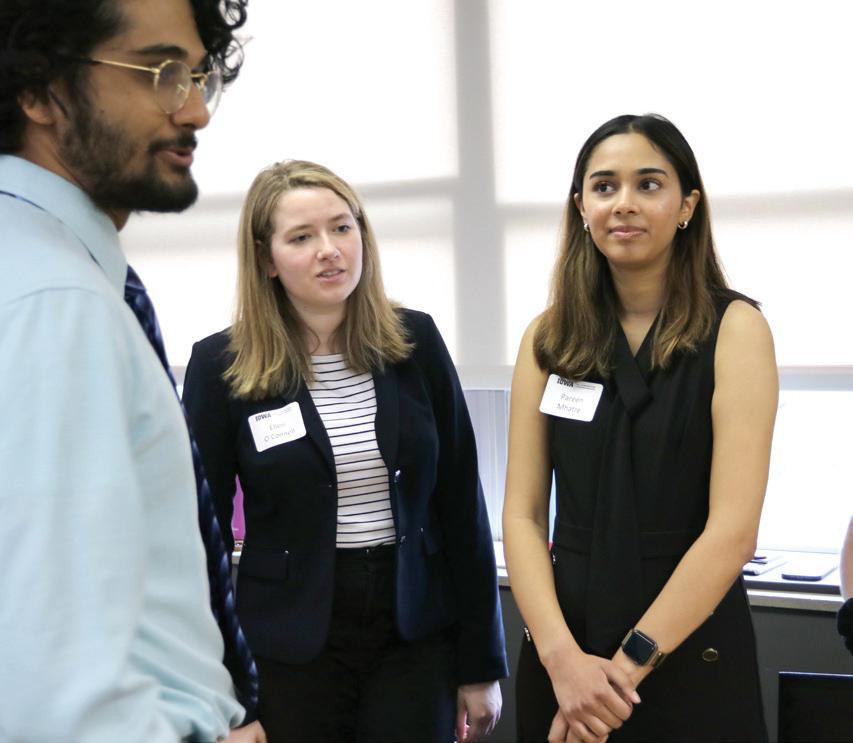A LU M N US M A K E S
on water tr “I am incredibly confident that the UI graduates we hired over the years came to us with the training needed to be successful engineers. Maybe just as important is that these graduates are also globally aware and ethical, which is essential in the kind of international work that we do.” R O B E R T ( B O B) W U B B E N A
GROWING
up in small-town Bristow, Iowa, Robert (Bob) Wubbena might never have imagined his work as an engineer would take him to the west coast and eventually around the world. Completing his civil and environmental engineering degrees from the University of Iowa College of Engineering in 1966 and 1968, respectively, Wubbena parlayed his studies of water treatment and work on campus into a career that would improve quality of life and access to clean water throughout the Pacific Northwest and across the globe. While a student on campus, Wubbena worked as part-time water and wastewater treatment plant operator on the UI campus. This job, somewhat unusual for a student to have, opened his eyes to the process of water treatment and its essential role in keeping communities safe, healthy, and vibrant. “Even in the 1960s, the University of Iowa campus and Iowa City had a lot of specialized water treatment systems,” said Wubbena. “Getting this first-hand look at the process, combined with my work in the classroom, taught me a lot and positioned me to take what I learned into my professional career.” In addition to his part-time job, Wubbena also taught several classes at the UI while he was still a student, including courses on water and wastewater system operations and engineering.
38
IOWA ENGINEER 2022



























